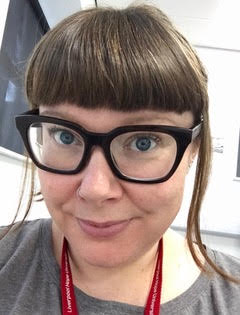If you need a little support with the academic side of life at university, don’t ever be afraid to reach out for help.
That’s the message from these ‘Academic Skills Mentors’ at Liverpool Hope University.
And they’ve described how they could provide valuable advice on a huge variety of abilities that many students never even knew they needed.
The Academic Skills Mentors are a unique asset at Hope, attached to the Library service.
The Mentors are all studying at postgraduate level at Hope - so they’ve lived and breathed the undergraduate experience and are fully-equipped to pass on what they’ve learned.
Offering support on everything from essay and dissertation planning and critical writing, to time management and how to craft those tricky literature reviews, they can be booked via the Library website.
And here we speak to three current Mentors, who described precisely what is they can offer:
Tommy Millea - “Our service is more relevant today than it ever was.”
Liverpool born Tommy knows all about academic skills - he’s currently working towards a PhD in History at Hope and plans to become a university lecturer himself.
And Tommy, who has worked in the Library since 2017, says his work as a Mentor is heavily influenced by the challenges created by the global pandemic.
The 27-year-old explains: “You have to bear in mind the impacts of Covid-19.
“Many students had little in the form of face-to-face sessions for the best part of two years and that has created very unique needs.
“That’s why our service is more relevant today than it ever was.”
One of the things offered by Hope’s Academic Skills Mentors is ‘critical reading and note-taking’.
And Tommy says that while students might think they already know how to read and take notes, getting it right is a really important part of university life.
He adds: “Reading is obviously something that most students are able to do well. But we expand on that - advising students on how to understand what it is they’re looking for before they even pick up the text.
“If you have a good idea of precisely what your essay is going to speak about, or what information you need for your exam, you can really hone your text-reading skills - and also question the writer’s arguments, asking yourself whether you really agree with them or not.
“It’s about getting into the habit of writing critically and thinking critically as well.”
Mentors can also help students really understand academic feedback, too.
Tommy adds: “We talk to first year students who struggle with the wording used in academic feedback. And, of course, they could go straight to the academic and ask for clarification - and I’m sure the tutor would support them completely - but often they feel more comfortable coming to us.
“And, in general, I’d encourage students to ask questions, make sure they understand something, and know that the support is there for them whenever they need it.”
Georgina Bailey - “The transition to academic writing is tough - but we can help.”

Psychology PhD student Georgina has been a Mentor at Hope since 2019.
And a big part of her role is helping undergraduates really get to grips with the nuances of academic writing.
She adds: “A lot of people can write, and a lot of people can write well. But whether they can write well and get the marks for doing that in a specific rubric, is very different.
“As a Mentor, we can get students up to speed on how it all works - the tone, the referencing, and the critical writing aspect.”
Georgina, 40 years old and originally from Derby, says she also tells students never to take anything at face value.
She adds: “Question everything. Just because a piece of work is published in a peer-reviewed journal, it doesn’t necessarily mean that it’s objectively true. You need a healthy skepticism to everything to make sure it’s relevant.”
If you’re new to Hope, and you’re new to Higher Education, how do you fit your general life around your academic needs?
Georgina argues: “Mentors can help you figure out what works for you, particularly when it comes to that all-important time management. It’s not a ‘one size fits all’ approach, it’s all down to the person themselves.”
While you can request face-to-face Mentor sessions, most of it is done online - something which was introduced due to Covid-19 restrictions.
But Georgina says online sessions might actually be really beneficial for a lot of people. She claims: “Online sessions are really good for some people, particularly if they have any anxiety issues that might stop them meeting someone in person.
“And if you’re thinking about reaching out, please give it a go.
“There’s not a lot we can’t help with in one way or another. If we don’t know the answer to something, we’ll signpost you to someone who does. And that goes for general wellbeing advice, too.”
Jake Lawton - “It’s about instilling confidence.”
 (1).jpg)
For Jake, the role of an Academic Skills Mentor isn’t so much about equipping undergraduates with new skills, it’s about giving them the confidence to use what knowledge they’ve already got.
Jake - who’s just finished an MRes in The History of Everton FC and will return to Hope in January to begin a PhD examining how football spread through Europe in the 20th century - explains: “What we often see as Mentors is confusion - students might be confused by an essay title or not know what’s expected.
“But what I’ve found is that once you start asking students some questions it becomes clear that they actually do know what they should do, they just lack that bit of confidence to go for it.
“At the end of a session, it’s not that I think the student needs to know something new or to understand a new idea, necessarily, it’s that they need to have the confidence to either start writing or to finish writing what they’ve already begun. That’s how I see my role.”
Jake, 24 and originally from County Durham, says inner confidence is likely to have been somewhat eroded because of the global pandemic.
He adds: “I think that’s why these one-on-one sessions are so valuable. You can have half an hour chatting to someone where they’re able to verbalise what they’re going through. The students just talking is often enough to firm-up their ideas. We’re almost like a sounding board, while also obviously providing specific technical advice.
“Fundamentally, by listening to them we’re able to instil confidence.”
Jake studied for his undergraduate degree in History at the University of Edinburgh - and says he wishes he’d been able to rely on a mentor back then, revealing: “In hindsight now, I regret not doing that. I think some students think they should only turn to a service like this when you’re having a problem, or if you’ve had negative feedback. But this service provides so many benefits to all students - even if you just want to make the jump to a higher grade boundary.”
** Academic Skills Mentors can be accessed through the Libraries web pages or email studyskills@hope.ac.uk.




